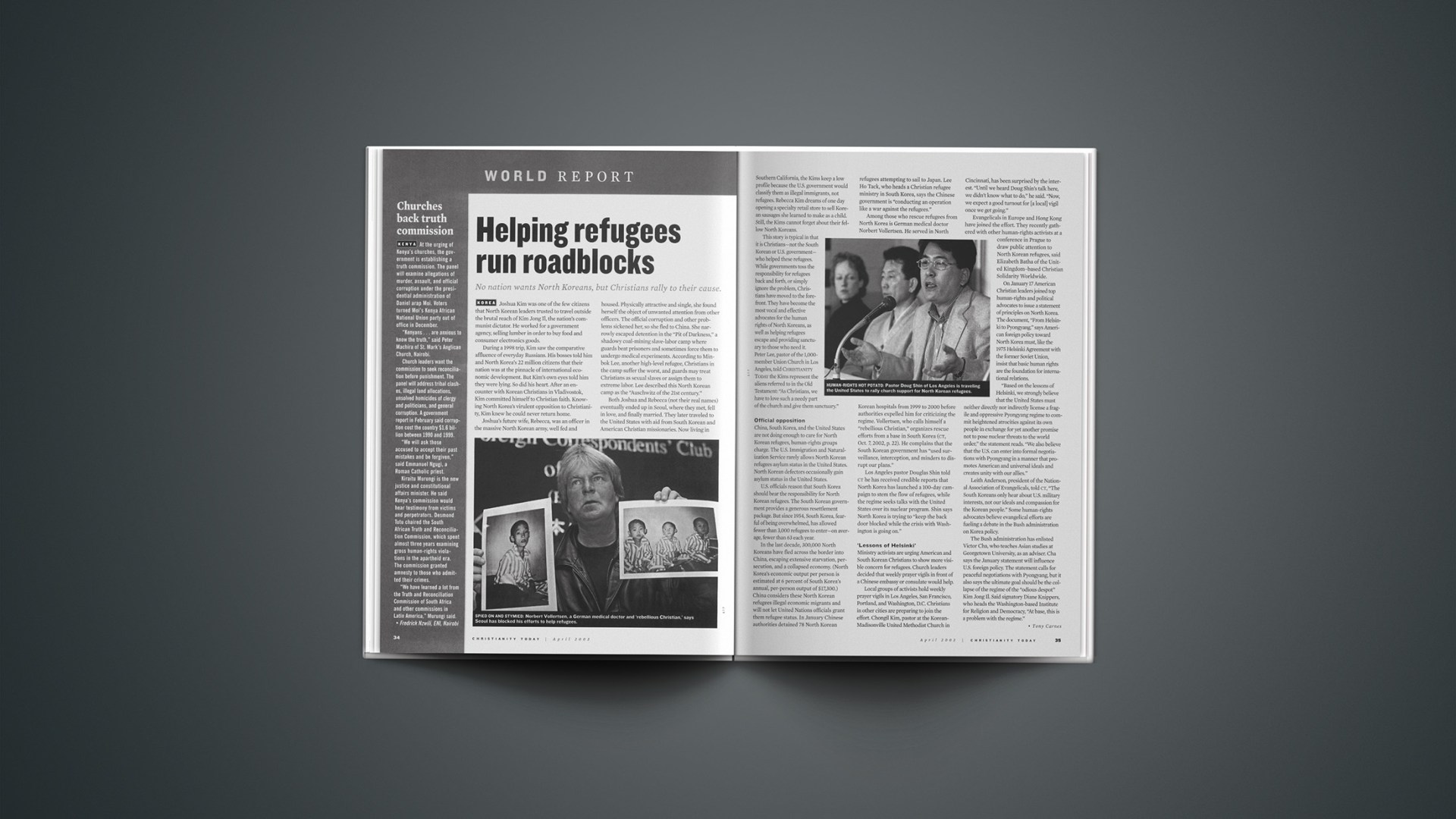At the urging of Kenya’s churches, the government is establishing a truth commission. The panel will examine allegations of murder, assault, and official corruption under the presidential administration of Daniel arap Moi. Voters turned Moi’s Kenya African National Union party out of office in December.
“Kenyans … are anxious to know the truth,” said Peter Machira of St. Mark’s Anglican Church, Nairobi.
Church leaders want the commission to seek reconciliation before punishment. The panel will address tribal clashes, illegal land allocations, unsolved homicides of clergy and politicians, and general corruption. A government report in February said corruption cost the country $1.6 billion between 1990 and 1999.
“We will ask those accused to accept their past mistakes and be forgiven,” said Emmanuel Ngugi, a Roman Catholic priest.
Kiraitu Murungi is the new justice and constitutional affairs minister. He said Kenya’s commission would hear testimony from victims and perpetrators. Desmond Tutu chaired the South African Truth and Reconciliation Commission, which spent almost three years examining gross human-rights violations in the apartheid era. The commission granted amnesty to those who admitted their crimes.
“We have learned a lot from the Truth and Reconciliation Commission of South Africa and other commissions in Latin America,” Murungi said.
Copyright © 2003 Christianity Today. Click for reprint information.
Related Elsewhere
For more articles on Kenya, see Christianity Today‘s World Report, AllAfrica.com, or Yahoo full coverage.
Previous CT stories on Kenya include:
Churches Celebrate Kenya’s New President | They are pushing for health care, free education, and an improved economy. (Feb. 20, 2003)
U.S. Blacks Preach Abstinence Gospel | Mission workers testify that Christ helps control sexual urges. (March 27, 2002)
Christians Flee Rioting | Tensions between landowners and tenants spark violence in Nairobi slum. (Jan. 31, 2002)










